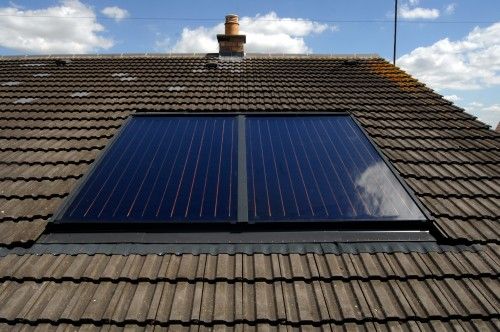 Government has “partially” listened to pleas from the solar industry and reduced its intended cuts to the Feed-in Tariff as the DECC (Department of Energy and Climate Change) has announced its final decision on rates from 2016 onwards.
Government has “partially” listened to pleas from the solar industry and reduced its intended cuts to the Feed-in Tariff as the DECC (Department of Energy and Climate Change) has announced its final decision on rates from 2016 onwards.
The revised plans will see domestic tariffs being cut by 64% as opposed to the original proposed cuts of 87%. These changes will reduce the subsidies gained from small-scale electricity panels on homes to 4.39p/kWh, little more than 1/3 of the existing 12p/kWh but significantly more than the originally proposed 1.63p/kWh. For a modest commercial rooftop scheme the size of a school or small commercial building, the Feed-in Tariff rate will be 4.59p/kWh.
The new tariffs will come into force from 8 February, and the deadline for projects to receive the current higher tariffs is now 15 January.
Defending the cuts, UK energy secretary Amber Rudd commented: “We have to get the balance right and I am clear that subsidies should be temporary, not part of a permanent business model. When the cost of technologies come down, so should the consumer-funded support.”
The decision comes after a prolonged campaign by the Solar Trade Association and many supporting organisations to reduce the cuts, and there is some relief within the industry.
In light of the recent global decision to tackle climate change, industry professionals within the solar industry and beyond have criticised the Government, saying that more could and should be done to reap the full benefits of the British solar industry.
Paul Barwell, CEO of the Solar Trade Association said: “Government has partially listened. It’s not what we needed, but it’s better than the original proposals, and we will continue to push for a better deal for what will inevitably be a more consolidated industry with fewer companies.
“However, in a world that has just committed to strengthened climate action in Paris and which sees solar as the future, the UK Government needs to get behind the British solar industry. Poor ambition for solar risks missing out on not only our renewable energy targets in the UK, but on the world’s greatest economic opportunity too.”
Julia Evans, chief executive, BSRIA, said: “It is bizarre that the Government continues to hand out billions of pounds in subsidies every year to ‘less green’ fossil fuels, while trying to block the clean energy sources the UK urgently needs.”



